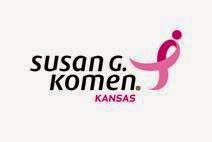Young Women
Breast cancer knows no age boundaries. Breast cancer in young women is rare – about five percent of breast cancer cases occur in women under age 40. However, breast cancer can and does happen to women under age 40. If you are a young woman and feel that something is not normal, advocate for yourself until you get care that addresses your concerns. No one should ever assume that just because you are young you cannot get breast cancer.
Women diagnosed before age 40 are more likely to have a mutated BRCA1 or BRCA2 gene that puts them at a greater risk of developing breast and ovarian cancer. If a woman carries a mutated gene, she may have a 30-85 percent chance of developing breast cancer in her lifetime. Having an immediate family member (parent, sibling or child) with breast cancer also increases a young woman’s chance of developing breast cancer. So while the risk of developing breast cancer is low for most women, it is higher for some. Young women who are diagnosed with breast cancer should discuss future plans with their physician, as some treatments may affect fertility. Young women may also experience concerns that are different from those of older women. There are several resources tailored to young survivors:
- Call the Susan G. Komen® Breast Care Helpline: 1-877 GO KOMEN (1-877-465-6636) Visit the Susan G. Komen® website: www.komen.org
- Search www.ShopKomen.com for these booklets: What’s happening to me?, What’s happening to the woman I love?, What’s happening to mom?, What’s happening to the woman we love?
- Contact Fertile Hope: 1-866-965-7205 or www.fertilehope.org
- Contact Young Survival Coalition®: 1-877-972-1011 or www.youngsurvival.org
Though boys and girls begin life with similar breast tissue, over time men do not have the same complex breast growth and development as women. At puberty, high testosterone and low estrogen levels stop breast development in males. Some milk ducts exist, but they remain undeveloped, and lobules are most often absent. However, breast problems, including breast cancer, can occur in men.
Men account for one percent of all breast cancer diagnoses. Survival rates for men are about the same as for women with the same stage of cancer at the time of diagnosis. However, men are often diagnosed at a later stage because they may be less likely to report symptoms.
The most common sign of breast cancer in men is a painless lump or thickening in the breast or chest area. However, any change in the breast or nipple can be a warning sign of breast cancer in men, including:
- Lump, hard knot or thickening in the breast, chest or underarm area (usually painless, but may be tender)
- Change in the size or shape of the breast
- Dimpling, puckering or redness of the skin of the breast
- Itchy, scaly sore or rash on the nipple
- Pulling in of the nipple (inverted nipple) or other parts of the breast
- Nipple discharge
Co-Survivors
Breast cancer affects not only the survivor, but also the co-survivors – the people supporting the survivor through treatment and beyond. At Susan G. Komen, we consider a person a survivor from the moment a breast cancer diagnosis is confirmed. Co-survivors can be family members, spouses or partners, friends, health care providers or colleagues. Anyone who is there to lend support from diagnosis through treatment and survivorship is considered a co-survivor. Many different co-survivors may enter the survivor’s life over time, lending support in a variety of ways.
Directly upon diagnosis, there may be a whirlwind of tests and treatments. It goes by so quickly that the survivor and co-survivors may have little time to process the emotions that accompany a breast cancer diagnosis. And when treatment is completed, the new normal sets in. The new normal is difficult to explain because it is different for each individual. The survivor may have a new perspective on life, which may include a desire to make a difference in the world, concerns about recurrence or metastasis, or a reorganization of life’s priorities. Co-survivors are often impacted by the new needs of the survivor.
Sometimes it is hard to know what to do or what to say. Komen’s educational materials and resources can help co-survivors understand and meet the needs of someone going through this experience.
- Fact sheets on topics such as: “What to say when you don’t know what to say” or “What to do when you don’t know what to do”
- Create a network of support through online communities at sites such as: lotsahelpinghands.com or CaringBridge
- Connect with other co-survivors: Read stories of hope and encouragement from co-survivors and breast cancer survivors, and share your story to help inspire others.
- The co-survivor message board (Family, Friends and Caregivers) is a place to share ideas and support with people who know how you feel.
- Find more information here: http://ww5.komen.org/BreastCancer/FriendsampFamily.html


No comments:
Post a Comment